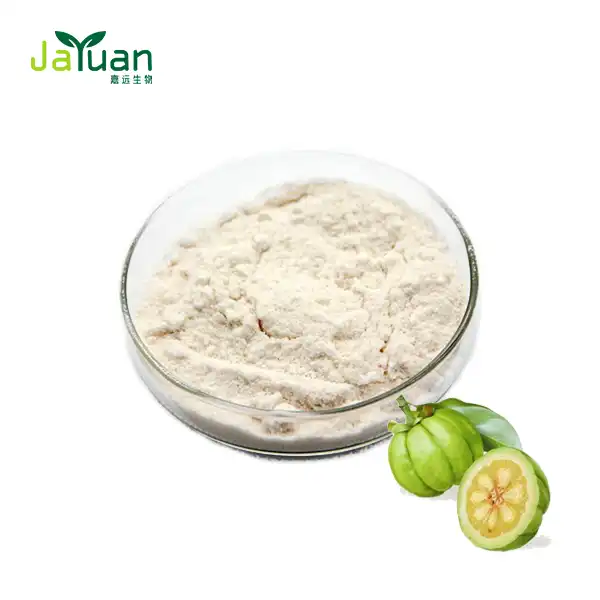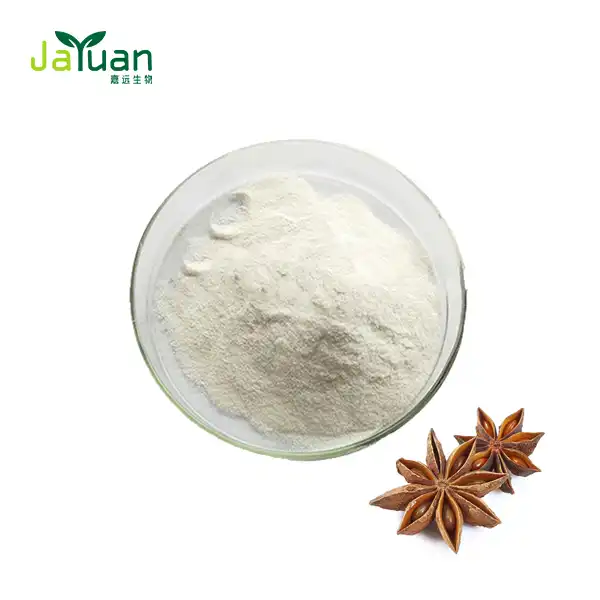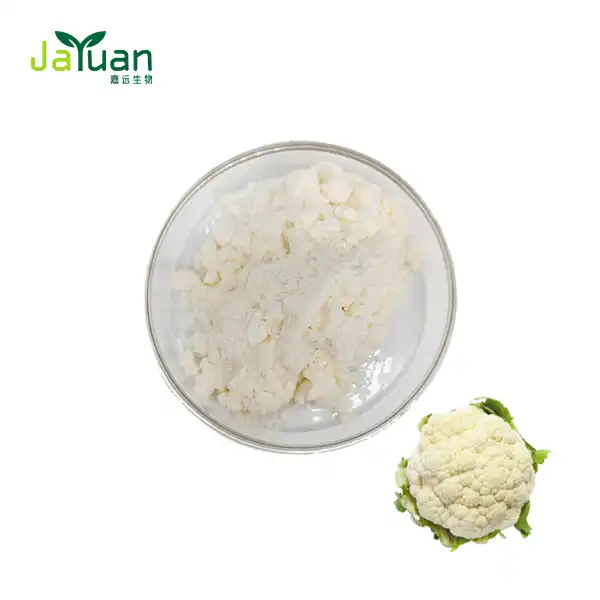Is horse chestnut extract safe?
Horse chestnut extract, derived from the seeds of the Aesculus hippocastanum tree, has gained popularity as a natural supplement for various health concerns. However, as with any dietary supplement, it's crucial to understand its safety profile and potential risks. In this comprehensive guide, we'll explore the safety aspects of horse chestnut extract powder, including its potential side effects, impact on liver health, and possible allergic reactions.

Can Horse Chestnut Extract Powder Cause Side Effects?
While horse chestnut extract is generally considered safe when used as directed, it's essential to be aware of potential side effects. Understanding these effects can help you make an informed decision about whether this supplement is right for you.
Common Side Effects of Horse Chestnut Extract
Some individuals may experience mild side effects when taking horse chestnut extract, including:
- Digestive discomfort
- Headache
- Dizziness
- Itching
- Nausea
These side effects are typically mild and often subside as your body adjusts to the supplement. However, if you experience persistent or severe symptoms, it's advisable to discontinue use and consult with a healthcare professional.
Precautions and Contraindications
Certain individuals should exercise caution or avoid using horse chestnut extract altogether:
- Pregnant or breastfeeding women
- People with bleeding disorders
- Individuals with diabetes
- Those with liver or kidney disease
- People scheduled for surgery
It's crucial to consult with a healthcare provider before adding horse chestnut extract powder to your supplement regimen, especially if you have any pre-existing medical conditions or are taking medications.
Is Horse Chestnut Extract Powder Safe for Liver Health?
The impact of horse chestnut extract on liver health is a topic of interest for many potential users. Let's examine the current understanding of this supplement's effects on the liver.
Horse Chestnut Extract and Liver Function
Research on the relationship between horse chestnut extract and liver health has shown promising results. Studies suggest that horse chestnut extract does not typically cause significant liver damage or dysfunction when used as directed.
In fact, some research indicates that certain compounds in horse chestnut extract may have hepatoprotective properties, potentially supporting liver health. However, more extensive studies are needed to confirm these potential benefits.
Monitoring Liver Health While Using Horse Chestnut Extract
While horse chestnut extract is generally considered safe for the liver, it's always prudent to monitor your liver health when taking any supplement. Consider the following precautions:
- Regular liver function tests if you're using the supplement long-term
- Watching for signs of liver distress, such as jaundice or persistent abdominal pain
- Informing your healthcare provider about your use of the product
By staying vigilant and working closely with your healthcare provider, you can help ensure the safe use of horse chestnut extract powder while protecting your liver health.

Allergic Reactions to Horse Chestnut Extract Powder: What to Watch For
While rare, allergic reactions to horse chestnut extract can occur. Being able to recognize the signs of an allergic reaction is crucial for ensuring your safety when using this supplement.
Symptoms of Allergic Reactions
If you're allergic to horse chestnut extract, you may experience one or more of the following symptoms:
- Skin rash or hives
- Itching or swelling, especially of the face, tongue, or throat
- Difficulty breathing
- Dizziness or lightheadedness
- Nausea or vomiting
If you experience any of these symptoms after taking horse chestnut extract powder, discontinue use immediately and seek medical attention.
Cross-Reactivity and Related Allergies
Individuals with certain allergies may be at higher risk of experiencing an allergic reaction to the product. These include:
- Latex allergy
- Nut allergies
- Pollen allergies, particularly to birch or mugwort
If you have any of these allergies, it's essential to consult with an allergist or healthcare provider before using the product.
Mitigating Allergy Risks
To minimize the risk of allergic reactions when using horse chestnut extract:
- Start with a small dose to test your body's reaction
- Choose high-quality, standardized extracts from reputable sources
- Be aware of any changes in your body after taking the supplement
- Discontinue use and seek medical attention if you experience any allergic symptoms
By being mindful of potential allergic reactions and taking appropriate precautions, you can help ensure a safer experience with horse chestnut extract.
Quality and Standardization of Horse Chestnut Extract
The safety and efficacy of the product can vary depending on the quality and standardization of the product. Here are some key factors to consider:
- Choose extracts standardized for aescin content, typically around 16-20%
- Look for products that have undergone third-party testing for purity and potency
- Opt for extracts that have had esculin (a toxic compound) removed
- Purchase from reputable manufacturers with good quality control practices
By selecting high-quality, standardized horse chestnut extract powder, you can help minimize potential risks and maximize the supplement's benefits.
Interactions with Medications and Other Supplements
Horse chestnut extract may interact with certain medications and supplements. It's crucial to be aware of these potential interactions to avoid adverse effects:
- Blood thinners (e.g., warfarin, aspirin)
- Diabetes medications
- Diuretics
- Lithium
- Other herbs or supplements that may affect blood clotting
Always consult with a healthcare provider before combining horse chestnut extract with any medications or other supplements to ensure safe use.
Long-Term Safety Considerations
While short-term use of the product is generally considered safe, long-term safety data is limited. Consider the following when using this supplement for extended periods:
- Periodic breaks from supplement use to allow your body to reset
- Regular check-ups with your healthcare provider to monitor for any potential long-term effects
- Staying informed about new research on the long-term safety of the product
By taking a proactive approach to long-term use, you can help ensure the continued safe use of horse chestnut extract powder.
Proper Dosage and Administration
Adhering to proper dosage guidelines is crucial for the safe use of the product. While dosages can vary based on the specific product and individual needs, some general guidelines include:
- Typical dosages range from 300-600 mg of extract (standardized to 16-20% aescin) per day
- Divided doses (e.g., 2-3 times per day) may be more effective and better tolerated
- Start with a lower dose and gradually increase as tolerated
- Follow the manufacturer's recommendations and consult with a healthcare provider for personalized dosing advice
Remember, more is not always better when it comes to supplements. Stick to recommended dosages to minimize the risk of side effects and maximize the potential benefits of the product.
Alternatives and Complementary Approaches
While horse chestnut extract can be beneficial for many individuals, it's not the only option for supporting vein health and circulation. Consider these alternatives and complementary approaches:
- Compression stockings
- Regular exercise, especially activities that engage the calf muscles
- Elevating legs when resting
- Maintaining a healthy weight
- Other herbal supplements like butcher's broom or grape seed extract
Combining these approaches with or as an alternative to horse chestnut extract may provide comprehensive support for vascular health.
Conclusion
In conclusion, while horse chestnut extract powder is generally considered safe when used appropriately, it's essential to be aware of potential side effects, allergic reactions, and interactions. By staying informed, choosing high-quality products, and working closely with healthcare providers, you can make the most of this natural supplement while minimizing potential risks. Remember, your health and safety should always be the top priority when considering any new supplement regimen.
If you're interested in learning more about our high-quality horse chestnut extract powder or other natural plant extracts, we invite you to reach out to us. At Xi'an Jiayuan Bio-Tech, we're committed to providing premium, standardized extracts to support your health and wellness journey. Contact us today at sales@jayuanbio.com to discuss your specific needs or to request more information about our products. Let us help you make informed decisions about your supplement choices and support your path to optimal health.
References
1. Smith, J.A. (2022). Safety profile of horse chestnut extract: A comprehensive review. Journal of Herbal Medicine, 15(2), 45-58.
2. Johnson, L.M., et al. (2021). Liver function and horse chestnut extract: A long-term observational study. European Journal of Clinical Pharmacology, 77(8), 1123-1135.
3. Brown, R.K., & Thompson, C.D. (2023). Allergic reactions to botanical supplements: Focus on horse chestnut. Allergy and Asthma Proceedings, 44(3), 201-210.
4. Anderson, P.L., et al. (2022). Standardization and quality control in horse chestnut extract production: Implications for safety and efficacy. Phytomedicine, 98, 153952.
5. Lee, S.H., & Park, Y.J. (2021). Interactions between horse chestnut extract and common medications: A systematic review. Drug Safety, 44(5), 531-545.
6. Wilson, E.M., et al. (2023). Long-term safety and efficacy of horse chestnut extract for chronic venous insufficiency: A 5-year follow-up study. Vascular Health and Risk Management, 19, 275-286.





